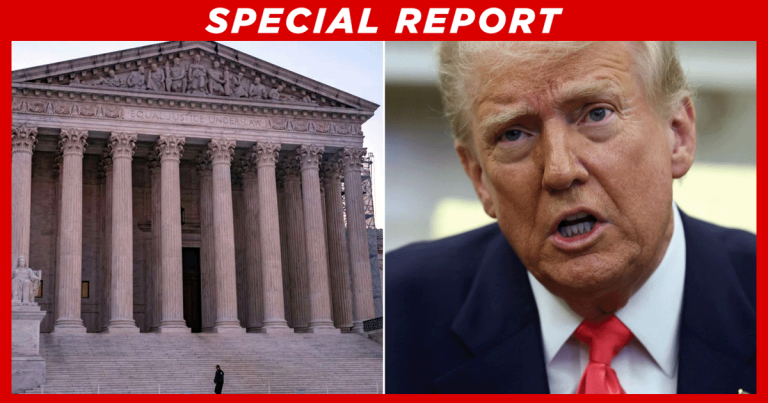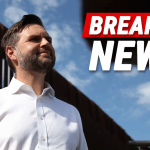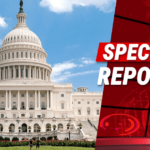
Remember when Trump promised he’d put Americans first and crack down on illegal immigration? Well, patriots, he’s making good on those promises faster than you can say “border security.” The Biden years saw record numbers of illegal crossings, but President Trump’s administration has been working overtime to reverse that trend since day one.
One of Trump’s boldest moves was his executive order on birthright citizenship. But as with most things in Washington, what the president wants isn’t always what the president gets—at least not without a fight. Several activist judges quickly stepped in to block the order nationwide, setting up yet another showdown between the executive branch and the judiciary.
Now the Trump administration is taking this battle all the way to the Supreme Court. According to The Post Millennial, “The Trump administration has taken new action to enact the executive order Trump signed to change the precedent on birthright citizenship in the US. The administration has asked the Supreme Court to allow some of the order to go into effect while the lawsuits are playing out in the lower courts.”
Judges Say ‘Not So Fast’ to Presidential Power
The executive order Trump signed on his first day in office would end automatic citizenship for children born on U.S. soil to mothers who are in the country illegally or on temporary visas. It’s a dramatic shift from the longstanding interpretation of the 14th Amendment, which has generally been understood to grant citizenship to nearly everyone born on American soil.
Federal judges in Maryland, Massachusetts, and Washington quickly issued nationwide injunctions blocking the order. One judge even called the executive order “blatantly unconstitutional” during a hearing, while another observed that “no court in the country has ever endorsed the president’s interpretation.” Funny how these judges suddenly become constitutional scholars when it comes to blocking Trump’s agenda, isn’t it?
These sweeping injunctions didn’t just block the order for the parties involved in the lawsuits—they prevented implementation across the entire country. And that’s exactly what the Trump administration is now challenging.
Border Battles Go to Washington’s Highest Court
Acting Solicitor General Sarah Harris is asking the Supreme Court to limit the scope of these lower court orders. She’s not asking the high court to rule on the constitutionality of the executive order itself—at least not yet. Instead, she wants the justices to allow partial implementation while the legal battles continue.
From ‘The Post Millennial’:
“The administration has asked the high court justices to allow a portion of the order to go into effect and to ‘narrow court orders entered by district judges in Maryland, Massachusetts and Washington that blocked the order.'”
This isn’t just about birthright citizenship—it’s about the proper balance of power between the branches of government. Several Supreme Court justices, including Clarence Thomas, Neil Gorsuch, and Brett Kavanaugh, have previously criticized nationwide injunctions and urged their colleagues to weigh in on their legality.
The 14th Amendment Showdown
At the heart of this dispute is the interpretation of the 14th Amendment’s Citizenship Clause, which states that “All persons born or naturalized in the United States, and subject to the jurisdiction thereof, are citizens of the United States and of the State wherein they reside.”
The key phrase here is “subject to the jurisdiction thereof.” The Trump administration argues that this language excludes children of those who are in the country illegally or temporarily, as they remain primarily under the jurisdiction of their home countries.
Critics counter that this interpretation runs contrary to over 150 years of constitutional understanding and Supreme Court precedent. The United States is one of roughly 30 countries, including Canada and Mexico, that currently offer automatic citizenship to virtually everyone born within their borders.
Harris argues that the lower court orders impede the president’s efforts to address what she describes as a crisis at the southern border. In her filing, she wrote that these injunctions “threaten to perpetuate those problems by holding out a nationwide incentive for illegal immigration: the prospect of American citizenship for the unlawful migrants’ children and of derivative immigration benefits for the migrants themselves.”
The question now is whether the Supreme Court—with its conservative majority—will step in to limit these nationwide injunctions and allow at least part of Trump’s executive order to take effect. If they do, it could mark a significant turning point not just for immigration policy, but for presidential authority in the face of judicial resistance.
Key Takeaways:
- The Trump administration has asked the Supreme Court to partially lift a ban on his birthright citizenship order.
- The executive order would deny automatic citizenship to children born to mothers in the U.S. illegally or on temporary visas.
- Several Supreme Court justices have previously criticized nationwide injunctions.
Sources: The Post Millennial, CBS News, SCOTUSblog


